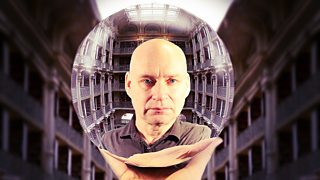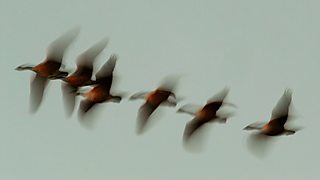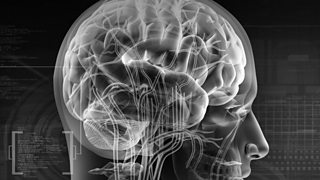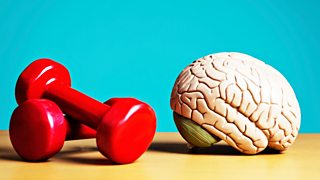Can you tap into a natural sense of direction?
Whether humans have an inbuilt sense of direction has long been a mystery. But recent scientific research suggests we do have an innate ability to detect changes in the earth’s magnetic field – a skill that may once have helped us to find our way around.
As Out of the Ordinary explores whether we’re still able to access this potential sixth sense, we look at the science and stories behind this fascinating phenomenon.

Let’s start with animals…
We know that a magnetic sense exists because it’s already been observed in all sorts of animal species, including lobsters, whales, sea turtles, cattle, foxes, dogs, rodents, honeybees and even tiny ocean-dwelling krill. Perhaps most bizarrely, molluscs have been found to have teeth made from magnetite, the most magnetic natural mineral on earth.
-
![]()
Out of the Ordinary
Might humans have an inbuilt compass like homing pigeons? If so, how can we rediscover it?
Birds are thought to be able to navigate by ‘seeing’ the Earth’s magnetic field.
Birds are thought to be able to navigate by ‘seeing’ the Earth’s magnetic field. This enables some species to migrate huge distances with incredible accuracy. For example, the Arctic tern follows a zig-zag route tens of thousands of miles from Europe to the Antarctic, and back again.
The strange story of Baker’s bus experiments
Out of the Ordinary describes how, in the 1970s, zoologist Robin Baker appeared to prove that humans have an innate sense of direction. In a series of experiments, he took blindfolded students on bus journeys and then asked them to get out and point in the direction of home. In later tests, the students were made to wear helmets too, some containing magnets, to see if this affected their navigational ability. The results, Baker said, were “revolutionary” and showed there was “no question that humans have a magnetic sense”.
However, when scientists in America tried to replicate Baker’s research, they couldn’t. For years, his ideas were viewed with skepticism, but it’s recently been suggested that the abundance of AM radio stations in the States may have been to blame. Lower frequency radio signals have been found to confuse birds’ magnetic sense, and may have had the same effect on the people in the US tests. That said, researchers in Sheffield tried to recreate some of Baker’s findings too, and they couldn’t either.

What does ‘The North’ actually mean?
Alex Beaumont questions whether 'The North' is a meaningful concept at all.

What happens when we walk without landmarks
Baker and his unsuccessful imitators aren’t the only people to have tried testing for an inbuilt human sense of direction in this way.
Researchers found that without landmarks to guide them, almost everyone in their experiment walked in circles.
A team of researchers from the Max Planck Institute for Biological Cybernetics in Germany set people the task of walking in a straight line across a forest and through the Sahara desert. They found that without landmarks to guide them, almost everyone walked in circles – sometimes as small as 20 metres in diameter.
But when the sun was visible, people performed a lot better.
How Pacific Ocean navigators travel without instruments
We know that expert wayfinding skills can be learned, and the Pacific Islands have produced some of the world’s most able ocean navigators.
In Out of the Ordinary, Nainoa Thompson describes being taught by Micronesian master navigator Mau Piailug to steer a traditional canoe across the Pacific from Hawaii to Tahiti, in French Polynesia, without a map or a compass.
He learned to use natural phenomena, such as the rising and setting of the stars, sun, moon and planets, and the ocean swells, waves and wildlife, to navigate vast distances.
But there was something else that Mau Piailug couldn’t teach…
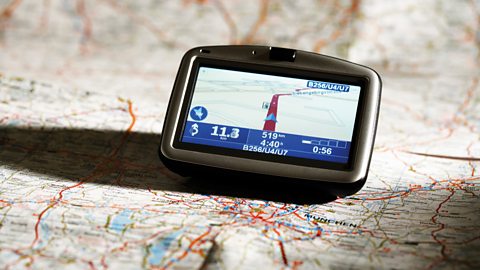
How top-secret military GPS became part of your daily life
How has GPS developed from military-only use to sitting on our wrists?

Mau and ‘the magic’
Thompson says Mau seemed to have an extra ability to navigate, even when there was darkness, heavy rain or changing winds. Mau called it ‘the magic’ and described how, when he was five years old, his grandfather had dragged him behind his canoe on a rope through the water. For Mau, this was what gave him an understanding of the ocean and his unerring sense of direction.
Geophysicist Joe Kirschvink ran experiments to test people’s perception of changes in magnetic fields around them. He believes the human magnetic sense is there, functioning and active.
Thompson says he, too, felt ‘the magic’ descend when he was lost in heavy cloud and suddenly felt certain of the route out.
“It’s those moments when there’s no confusion as [to] whether you know [the way] or not,” he says. “The only confusion will come later, when you say, ‘I have no idea how I knew’. And that’s the beauty.”
So, could an innate sense of direction exist within all of us?
Scientist Joe Kirschvink thinks so. He’s a geophysicist in California who ran an experiment to test people’s perception of changes in the magnetic field around them.
By monitoring alpha waves in the brain while his test subjects were in a relaxed state, and then silently shifting the magnetic field in the room, he and his team found that people’s brains reacted to the change.
This, Kirschvink believes, “tells us the human magnetic sense is indeed there. It is functioning and it is active. The fact that we still have it – it has to have been maintained by natural selection... And so, there should be some way of reaching it. There may be techniques for bringing it into conscious awareness.”

How the sun is a threat to our national security
Coronal mass ejections can damage communication and bring down electrical power supplies.
More from Radio 4
-
![]()
Out of the Ordinary
Might humans have an inbuilt compass like homing pigeons? If so, how can we rediscover it?
-
![]()
In Our Time: Bird Migration
Why some birds migrate and similar ones do not, whether the benefits outweigh the risks and how they navigate across oceans.
-
![]()
How you can re-programme your brain
Are we able to rewire and re-programme our own mind and control our own destiny?
-
![]()
Eight ways to boost your brain power
Smart tips: here's a practical and optimistic guide to boosting your brain power.
